|
|
|
Issue Number 4 • Tuesday, Oct. 12, 2021 |
Campus Champion“Step out of your comfort zone and join something new,” advises senior human services studies major Claire Perini. She did that a year ago as a transfer student from Tompkins County Community College in the midst of remote learning. She applied to be an Orientation Assistant, which has allowed her to explain SUNY Cortland’s many resources to other new students. She practices what she preaches. Claire joined the social sorority Nu Sigma Chi and met new friends. She also found success when she visited the Writing Center for help. “When something sparks my interest, I go for it.” SUNY Cortland celebrates National Transfer Student Week Oct. 18 to 22. Follow along on social media using the hashtag #CortlandTransfers. Tuesday, Oct. 12SafeZone Workshop: Sponsored by the Multicultural Life and Diversity Office, online via Webex, 3 to 5 p.m. Wednesday, Oct. 13Piñata Stress Relief Night: Join the Student Activities Board and release midterms stress on a piñata, Bishop-Shea Quad, 6 p.m. Urban Ed Speaker: Carrie Rood will speak to the Education Club about her experiences working in an urban school, online via WebEx Link club meeting number 2631 307 3766, 7 p.m. Sandwich Seminar: Piloting a Fully-Online Master's Program, presented by Katarina Silvestri, Brittany Adams and Nance Wilson, Literacy Department, online via Webex, 12:30 to 1:30 p.m. Brooks Lecture Series: “Why Do Communities Promote Scientifically Unreasonable Claims? Stupid, Crazy, or Just Humans Being Humans?” Presented by Craig Foster, professor and chair of the Psychology Department, Moffett Center, Room 115, 4:30 p.m., reception in the Moffett Center forum begins at 4 p.m. Study Abroad 101: Old Main, Room 220 Colloquium, 3 to 4 p.m. Wellness Wednesday Series: The Sexual Orientation, Gender Identity and Expression (SOGIE) Committee will host a discussion about mental health in the LGBTQ+ community, Corey Union Exhibition Lounge, 3 to 4 p.m. Simulation: On the Move: Populations in Crisis, Student Life Center Multipurpose Activity Court, 5 to 6:30 p.m. RSVP required. Public Deliberation: Health Care: How Can We Bring Costs Down While Getting the Care We Need? Corey Union Fireplace Lounge, 6:30 to 8:30 p.m. Online via Webex, register by emailing [email protected]. Thursday, Oct. 14Simulation: On the Move: Populations in Crisis, Student Life Center Multipurpose Activity Court, 11:30 a.m. to 1 p.m. RSVPrequired. Simulation: On the Move: Populations in Crisis, Student Life Center Multipurpose Activity Court, 2:40 to 4:10 p.m. RSVP required. Gallery Talk: A Walk Through Woods, presented by Steven Broyles, professor, Biological Sciences Department, Dowd Gallery, Dowd Fine Arts Center, 5 p.m. Monday, Oct. 18Fall Break begins: Continues through Tuesday, Oct. 19. Tuesday, Oct. 19Transfer Trivia: Sponsored by the Transfer Network Team, #CortlandTransfers, Student Life Center, Room 1104, 7 p.m. Wednesday, Oct. 20Sandwich Seminar: Course Planning to Praxis, presented by Adrienne Raw, English Department, Kristine Newhall, Kinesiology Department and Karen Downey, Chemistry Department. Online via Webex, 12:30 to 1:30 p.m. Wellness Wednesday Series: All Mixed Up, with Multicultural Life and Diversity Office staff who will lead a conversation about the lived experiences of multi-racial and multi-ethnic people. Corey Union Exhibition Lounge, 3 to 4 p.m. Study Abroad 101: Online in the IPO Remote Advising Room, 3 to 4 p.m. Thursday, Oct. 21Transfer Fall Festival: Sponsored by Tau Sigma National Honor Society, Sperry Center lawn, 3 to 5 p.m. Sunday, Oct. 24Run For All 5K: Hosted by the Student Government Association, register here by Thursday, Oct. 21. SUNY Cortland Sports Complex, 9 a.m. Cortland CROP Hunger Walk: Twenty-five percent of the funds raised in the county come back to the county to support local food pantries and feeding programs including our own SUNY Cortland Cupboard. Register here. The start and finish at Grace and Holy Spirit Church, 13 Court St. Monday, Oct. 25Lecture: “The New Fascism Syllabus: Exploring the Right through Scholarship and Digital Engagement,” presented by Brian J. Griffith, Post-Doctoral Scholar in European History at UCLA, online via Webex, 4:30 p.m. Money Talks Mondays: Goal Setting and Budgeting: Online via Handshake, 4 to 5 p.m. Wednesday, Oct. 27Flu Clinic: For both Flu and 65+ Flu, Corey Union in the Exhibition Lounge, Register online. |
Simulation focuses on global refugee crisis10/12/2021Last year, more than 82.4 million people — one out of every 95 people on the planet — were living as refugees after fleeing war, violence, persecution, economic turmoil and disaster, according to the United Nations High Commissioner for Refugees. That number has doubled over the last 20 years as part of a global humanitarian displacement crisis that shows little sign of slowing. Members of the SUNY Cortland community have an opportunity to gain a better understanding of the human beings behind the staggering numbers during a simulation titled “On the Move: Populations in Crisis” planned for Wednesday, Oct. 13 and Thursday, Oct. 14 in the Student Life Center. The hour-and-a-half simulation — offered once Wednesday and twice Thursday — introduces participants to some of the world’s ongoing refugee crises by leading participants through stations representing common refugee experiences. It ends with an open discussion. 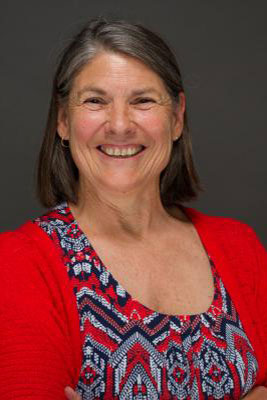
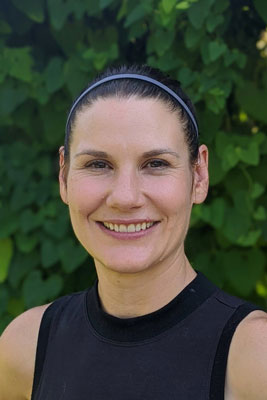
The goal is to create an interactive learning environment open to the campus community, said Carrick-Hagenbarth, an assistant professor of economics who is co-leading the event with her mother, Pat Carrick, vice president of the U.S. board of directors of Doctors Without Borders/Medecins Sans Frontieres USA. “For many of us, the plight of refugees and displaced people can seem very distant to our own lives,” Carrick-Hagenbarth said. “Our main experience with the issue may be via news media, which paints an incomplete and often negative picture of people seeking safety. This refugee simulation is meant to provide the space for people to recognize the humanity of refugees, their potential and capabilities, and to provide a means for people to connect physically and emotionally to the topic.” Pat Carrick is a humanitarian health care worker, most recently with the International Rescue Committee assisting Afghan refugees entering into the United States. Although the plight of Afghan refugees has recently dominated U.S. headlines, displaced people are also fleeing danger from Ethiopia, Syria, Haiti, Venezuela, Yemen, the Central African Republic many other countries around the globe. This is both a logistical challenge and a humanitarian crisis. Pat Carrick visited SUNY Cortland in March 2019 to talk about her work with Doctors Without Borders, a medical humanitarian aid organization that responds to millions of patients around the world every year. Carrick spent 30 years working in acute care hospital nursing and home-based hospice services as well as in community health centers that provided care to under-served populations in her home state of Montana. She then served as medical team leader at an Ebola treatment center in Sierra Leone in 2015. She previously traveled to Malawi for HIV-related work in 2007 and to South Sudan in 2010 to combat malnutrition. As the director of the board of directors for Doctors Without Borders (MSF), she assisted in Ebola hot zones, HIV/AIDS-ravaged communities and conflict-torn countries on the verge of famine. Given Carrick’s extensive background as a medical field worker, the simulation will include a discussion of the medical implications facing refugees. Participants will see how malnutrition is identified and measured. Also, Carrick will discuss the careful planning and requirements needed to transport and store medications, including vaccines, in remote areas and at refugee camps located in extreme heat conditions. Carrick-Hagenbarth is an economist who studies economic development in Latin America. Her work has focused on the experiences of rural landless workers in Brazil. Additionally, she has volunteered with the United Nations High Commission for Refugees (UNHCR) in Ecuador assisting Colombian asylum seekers. Three sessions will be offered in the Student Life Center multipurpose activity court:
Those interested are asked to RSVP to one of the sessions. Each session will be capped to encourage dialogue and ensure meeting COVID safety protocols. If a minimum number of people do not sign up, the session will be canceled. For more information, email Carrick-Hagenbarth or reach her by phone at 607-753-5623. Model Garden and Bioswales signage ceremony held10/12/2021The nine beds of SUNY Cortland’s Model Garden have been in their places for at least three years. Starting today, members of the campus community will have a better idea of what exactly they are. A newly installed sign beside Van Hoesen Hall now explains the many ways the garden plots support the campus’ major mission for environmental sustainability. About 25 members of the SUNY Cortland campus community gathered beside the splash of green and color outside Cornish Hall across from Memorial Library today, Oct. 12 to mark the installation of the new sign. During the brief ceremony on the mild and sunny fall afternoon, SUNY Cortland President Erik J. Bitterbaum marked the evolution of the gardens in the life of the campus. Faculty, staff and students serving on the Garden Advisory Committee joined children and their caregiver from the SUNY Cortland Child Care Center as they celebrated the occasion with Bitterbaum. 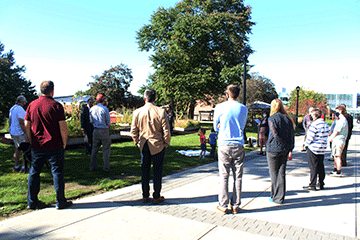
“I don’t know if you garden but there’s nothing more fun than to plant something, grow it and then to eat it,” he said. “Things taste better if they come from your garden.” Bitterbaum explained that the university for many years tended gardens located further down toward Van Hoesen Hall as a means to prepare future educators to teach science. “When we renovated Cornish Hall we had to take it out,” Bitterbaum said. “I think it was the Garden Advisory Committee that suggested we put it back in.” Students enrolled in the Biological Sciences Department and the School of Education expressed the most need for their restoration. Auxiliary Services for a while maintained some beds near Neubig Hall to grow produce and herbs to enhance the dining hall menu. Several years ago, the raised wooden beds featuring a mulch pathway were added in their current location where they are used by many different groups. Children from the Child Care Center practice growing things like garlic in several beds and space is available whenever a student majoring in biology wishes to conduct horticultural experiments. Bitterbaum noted that the plants growing in the beds support at least 20 different kinds of bees. That has contributed to the campus’ overall national distinction as a Bee Campus USA site since 2016. Biological science majors currently are growing milkweed plants to attract Monarch butterflies. 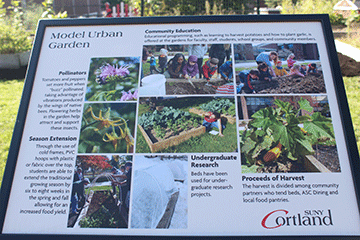
To earn the Bee Campus certification, colleges must do much more than raise awareness. They must manage campus environments with landscapes that encourage bee foraging and nesting and recognize the importance of pollination in sustaining agriculture and natural habitats. “That’s an amazing thing for such a small plot of ground to attract so many bees and wasps,” Bitterbaum said. “We’re trying to get a speaker to come here and speak about pollinators this year,” said Sarah Beshers, Garden Advisory Committee chair, professor of health and community health fieldwork coordinator. “I think the initial mission was growing herbs and veggies with an emphasis on the organic part: crops that wouldn’t use herbicides and pesticides; and we don’t. Bitterbaum mentioned the ceremony also marked the related bioswale project built down by the Student Life Center. The Model Garden hasn’t exhausted its possible uses. “We could get our food pantry up and running with fresh food,” Beshers said. “I don’t know what’s involved to get that here. Perhaps a student could do an independent study to work on it. “I think there’s a bright future here but it’s just connecting all the dots,” Beshers said. The volunteer Garden Advisory Committee seeks to facilitate educational use of college gardens in classroom activities, service learning and interactions with the community; to organize faculty, staff, students and community members to assist with gardening; and to coordinate the university’s Bee Campus USA activities. The committee also includes Jeremy Zhe-Heimerman, coordinator of Assistive Technology and Test Administrative Services; Josh McLaughlin, head grounds supervisor; Karen Diescher, a teacher with the Child Care Center; Louise Mahar, assistant director, recreation sports, fitness; Jeff Scott, director of dining services; and Beth Klein, professor, childhood/early childhood education and campus sustainability coordinator. Capture the MomentProfessor Theresa Curtis, right, and Professor Patricia Conklin, second from right, both from the Biological Sciences Department, talked to prospective students and their families during Fall Open House in the Student Life Center on Monday, Oct. 11. Another Open House is scheduled for Thursday, Nov. 11. Learn more at Cortland.edu/openhouse. In Other NewsEducation and awareness vital to end domestic violenceOctober is Domestic Violence Awareness month and with it comes the time to share knowledge about how to prevent dating and domestic violence. Members of SUNY Cortland’s It’s On Us Action Team will join the student club, Students Active for Ending Rape (SAFER), to raise awareness about interpersonal violence and offer resources to individuals seeking support. The team, comprised of students, faculty and staff, also will show support for the many survivors of sexual and domestic violence. The annual Take Back the Night March is set for Wednesday, Oct. 27. The mission is to take direct action against rape and actively fight to end sexual and domestic violence in all forms. Keynote speakers include Distinguished Teaching Professor of English Karla Alwes and senior Ally Hall ’22, who plans to share her personal story as well as the steps she’s taken to take back control of her life and prosper. A ceremony at Corey Union steps will begin at 7 p.m. and the march around campus will follow at 8:30 p.m. Details will be posted on SAFER’s Instagram account and through the hashtag #takebackthenight2021. The It’s On Us Action Team often collaborates with various offices on campus including Title IX, Residence Life and Housing, University Police Department and Health Promotions as well as SAFER to present programs related to dating and domestic violence. The team also works closely with advocates from the YWCA’s Aids to Victims of Violence program, a community resource available to anyone impacted by domestic violence. Earlier this month the university held a Tie Dye Thursday and Self-Defense Empowerment event to bring awareness to this important issue. Individuals wishing to make a report of dating or domestic violence can contact Title IX coordinator Maggie Wetter by email or at 607-753-4550. The color purple and the symbolic purple ribbons are used to raise awareness about the crime of domestic violence, and to remember and honor loved ones who have lost their lives at the hands of a person they once loved and trusted. The university joins the national campaign sending a powerful message that there is no place for domestic violence in our community. Purple lights shine at the three entrances throughout the month of October. The entrances are located at Court Street, Route 13 and Route 281. The awareness campaign also will include social media and posters on the visual messaging boards. “The It’s On Us Action Team demonstrates to our campus community that it takes more than a single individual, office or department to address sexual or domestic violence,” said Jonah Reardon ’13, deputy Title IX coordinator for investigations and training. “Each year, we see more students, faculty and staff join the conversation and we are always looking for more individuals to participate in our prevention efforts. Any members of our community are welcomed to be a part of the Action Team.” Information about the “It’s On US” Action team or Campus Entrance Lighting Change can be found on SUNY Cortland’s website. Aid to Victims of Violence with the YWCA Cortland has several events planned. They are listed on its website. Update on campus dining servicesDear campus community, We are writing to update you on changes to campus dining services made in response to recent student feedback. SUNY Cortland and Cortland Auxiliary Services’ Executive Board understand how important dining is for our students to meet your nutritional needs and as a key component to your mental health and academic success. We take this responsibility seriously and we are working with Cortland Auxiliary as it continues to adjust our dining services. Recent changes include:
If you have ideas on how Cortland Auxiliary can further improve, please share your ideas with them by talking with staff or through the online feedback form. Cortland Auxiliary prepares 25,000 meals each week and strives for excellence each time. If you do notice an issue, please notify a staff member immediately to have it addressed. Please visit the website for a map of dining facilities and the menus and hours for Cortland Auxiliary’s two dining halls and eight retail locations. Mobile ordering is available at our retail locations, which allows you to skip the line. Thank you for your patience and continued input. All the best, Erik J. Bitterbaum, President and the Cortland Auxiliary Services Executive Board Uncovered displays highlight Cortland’s concert legacyLast Thursday, a dedicated group of SUNY Cortland alumni pulled the sheets away from six shadowboxes mounted in the basement of Corey Union, revealing a 30-year history of big-name campus concerts. 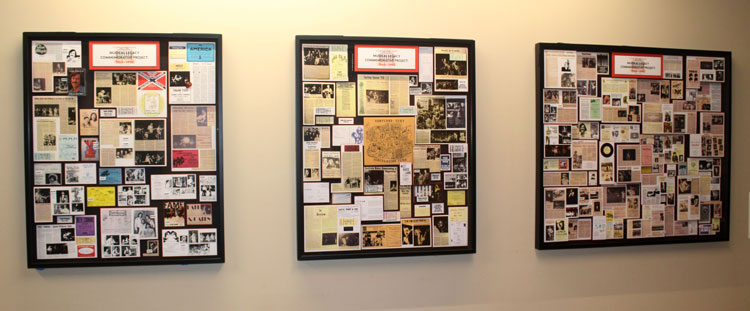
The boxes — filled with ticket stubs, newspaper articles, concert posters and saucer-sized 45 RPM records — document SUNY Cortland’s “golden era” of campus concerts from 1960 through 1990. During this time, the biggest acts in popular music toured colleges and Cortland was one of their favorite stops. Billy Joel, the Grateful Dead, the Beach Boys, the Eagles, Simon & Garfunkel, Linda Ronstadt and dozens of other chart-topping performers comprise SUNY Cortland’s musical legacy and are represented by the giant wall sculpture of musical instruments that serve as a centerpiece for Corey Union’s lower level, explained Sonia Sochia, an organizer of the commemorative project and member of the Musical Legacy Committee. That sculpture, created by local artist and alum Scott Oldfield ’06, was unveiled in August 2019. The memorabilia shadow boxes were intended to help explain its significance. “In March 2020 they were completed, hung and covered,” Sochia explained. “The unveiling event was scheduled for April 2, 2020. Then COVID happened.” The event was postponed until Oct. 7 of this year. Before last Thursday’s uncovering ceremony, members of the campus community had been walking past the shrouded boxes for the last 18 months. 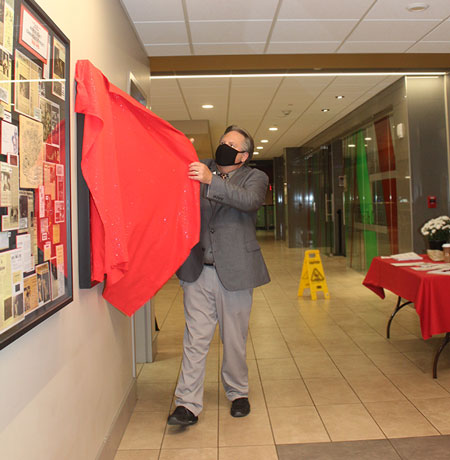
pulls a sheet to reveal the university's musical legacy. They featured speaker at the unveiling event was David “Rock” Feinstein, former guitarist for heavy metal icon and Cortland native Ronnie James Dio. Dio, who fronted such legendary hard rock and heavy metal bands as Black Sabbath, Rainbow and Dio, performed at SUNY Cortland in the 1960s and early 1970s. Feinstein is currently owner and operator of The Hollywood Restaurant on Groton Avenue. Other committee members who participated in the event included Kevin Pristash ’85, M ’91, director of campus activities and Corey Union; Ralph Shortell ’66, Gordon Valentine ’68, Rocco Scaptura ’68 and Jack Samuels ’73. The musical legacy project began in 2018 as part of SUNY Cortland’s 150th anniversary celebration. Surveillance testing available for all studentsDear students, I want to share with you a few updates about COVID-19 surveillance testing. Any student who would like to participate in surveillance testing may do so at any time. You do not have to wait until you are randomly selected. To register for a test, use the “COVID Student Pool Testing Sign-up” heading through the COVID tab in myRedDragon. Only asymptomatic students should participate in surveillance testing. Any students with COVID-19 symptoms are reminded to contact Student Health Service immediately at 607-753-4811 to schedule a test. Symptomatic students may also choose to schedule a test through a local pharmacy or healthcare provider. The state Department of Health has an online list of providers. Students who are not yet fully vaccinated or who have received a medical or religious exemption for this semester must continue to test weekly. We also will continue to select fully vaccinated students for surveillance testing based on caseloads and the results of wastewater testing. Your commitment to wearing face coverings and participating in surveillance testing has made SUNY Cortland a safer place as we continue to fight the Delta variant. Over the past seven days, we have found just three cases among students through more than 900 tests. This is a very encouraging trend. I commend all of you for your contributions. Please continue to regularly check your email for notifications that you have been selected for testing and follow through on registering. Students are still required to go to testing if selected. Know that you may schedule a test any time if you desire. You should also know that Wegmans Pharmacy is holding flu shot clinics on Tuesday, Oct. 12 and Wednesday, Oct. 27 in the Fireplace and Exhibition Lounges in Corey Union. You may register online. Select “schedule a new appointment,” pick the date of your choice, search for locations using ZIP code 13045 and follow the prompts to enter your personal information. The flu vaccination can help protect yourself and others from getting sick with flu and its most serious symptoms. Please stay safe and be well. All the best, Erik J. Bitterbaum President Brooks Lectures explore culture of extremesIn the last couple years, America and the rest of the world have been wracked by extremes that include political brinksmanship, apocalyptic weather events, deadly pandemic, economic collapse and social upheaval. At SUNY Cortland, the 2021-22 Rozanne M. Brooks Lecture Series will take on many of these timely topics in five separate lectures or poster sessions on the theme of “The Culture of Extremes.” The series, starting on Oct. 13, this year is limited to the campus community because of the ongoing threat of COVID-19. Among the presentations:
The Brooks lectures and receptions are free. Due to continued health and safety concerns surrounding the pandemic, members of the public are not invited. Seating will be limited and cannot be exceeded so please come early to secure a seat. 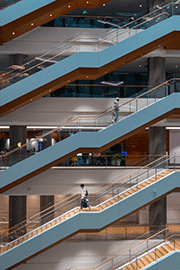
The talks all take place on Wednesdays and begin at 4:30 p.m. in Moffett Center, Room 115. Depending on the current public health circumstances, a reception to welcome each speaker before the talk may be announced. Events in the series are subject to change. “There seemed no better series theme than ‘extremes’ for this year given what we all have been through over the last 12-18 months,” said organizer and Brooks Museum director Sharon Steadman, a SUNY Distinguished professor and faculty member in SUNY Cortland’s Sociology/Anthropology Department. “The presentations this year will inform us on extreme beliefs and extreme events that surround us from near — such as Covid-19 — to far — such as outer space,” Steadman said. The series opens on Oct. 13 with a presentation on “‘Why Do Communities Promote Scientifically Unreasonable Claims? Stupid, Crazy, or Just Humans Being Humans?” The speaker, Craig Foster, is professor and chair of SUNY Cortland’s Psychology Department. Humans, according to Foster, promote a variety of unrealistic scientific claims that lack scientific credibility: climate change denial, anti-vaccination sentiments and creationism to name a few. Yet these promotions exert substantive and dangerous influences on contemporary society. “It is appealing to believe that people who promote these and other forms of pseudoscience must be unintelligent or mentally unwell,” he said. 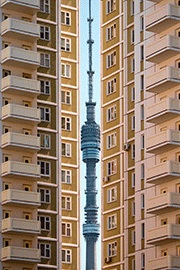
Foster will offer an opposing opinion. Drawing on his research and personal experience in studying pseudoscience, he will make the case that scientific-related fraud develops because humans are generally vulnerable to being drawn into pseudoscientific claims. The series will continue on Nov. 10 with Beth Ellen Clark, professor and chair of Ithaca College’s Physics and Astronomy Department, lecturing on the subject of NASA’s OSIRIS-REx Asteroid Sample Return mission with the talk, “Extreme Hazards: Planetary Collision.” She will help the participants imagine case scenarios that are worse than climate change. “We will review the ways in which NASA’s recent OSIRIS-REx Asteroid Sample Return mission is contributing to our quest to protect planet Earth from potentially hazardous asteroids,” Clark said. Continuing the series in the spring, on Feb. 23, SUNY Cortland assistant professor of sociology Elizabeth Bittel will speak on “(Re)Making Home on Shifting Sands: Lessons from Post-Catastrophe Corrosive Communities.” Using ethnographic data collected in Batticaloa, Sri Lanka, Bittel has explored how communities experienced recovery from the 2004 Indian Ocean Tsunami, considered to be a “mega-catastrophe,” and the 30-year Eelam War(s). “This work interrogates how power flows through institutions and communities seeking to rebuild their homes on shifting sands,” Bittel said. “In particular, my work looks at how the process of rebuilding physical infrastructure is shaped by actors and institutions and co-produces social cohesion or corrosion, which both flourish throughout the lifecycle of disasters.” A student panel will share their ideas at a presentation titled “Recovering from Extremes” on a date in March to be announced. The series will conclude with a talk that teases lessons from the insurrection at the U.S. Capitol on Jan. 6, 2021, which caught many Americans off guard. Sam Jackson, an assistant professor in the College of Emergency Preparedness, Homeland Security and Cybersecurity, University of Albany, will focus on “From Extreme Beliefs to Extreme Actions: The Oath Keepers” on April 6. Some Americans have become more explicit in preparing for violent conflict to stem off an alleged threat coming from criminals, terrorists, other Americans and even the government. “A group called Oath Keepers exemplifies this trend: perceiving threats from government, preparing for conflict with government, and leaving the door open for individual Americans to take action into their own hands,” Jackson said. “By examining this group, we can begin to understand how Americans who believe themselves to be patriots might storm the Capitol and attempt to disrupt American democracy.” The 2021-22 Brooks Lecture Series is sponsored by a grant from the Cortland College Foundation, the Sociology/Anthropology Department and the President’s Office. For more information, contact Steadman at 607-753-2308. Indigenous Peoples’ DayDear campus community, I am reaching out today, Indigenous Peoples’ Day, to take a few moments to reflect on its meaning. Long before Europeans arrived, the Americas were populated by millions of people from hundreds of different cultures. For centuries, Indigenous people were displaced from their land and subjected to policies of assimilation and suppression. In spite of this long history, today Indigenous peoples—there are over 500 tribal nations in the United States alone—continue to practice their traditional cultures and assert their right to self-determination. SUNY Cortland was founded on the traditional homelands of the Haudenosaunee or Iroquois Confederacy. The Great Law of Peace, which established the Iroquois Confederacy in 1142, recognizes the rights of all people to respect and peace. Haudenosaunee peoples today, including our neighbors at the Onondaga Nation, continue to practice these principles, including in their tireless advocacy on behalf of issues like human rights and environmental justice. Diversity and inclusion are critical to SUNY Cortland’s mission. Officially recognizing Indigenous Peoples’ Day in 2018 was a start for us at this university to begin to more fully honor the history, the culture and the contributions of Indigenous peoples. And we must continue to do more. I am reminded of advice shared by Sid Jamieson, a member of the class of 1964 who returned to campus to speak in November of 2019. Sid, who coached Bucknell University’s men’s lacrosse team from 1968 to 2005, is the only Indigenous person to have served as head coach of a Division I men’s lacrosse team. During his visit, he urged those in attendance to think about the Haudenosaunee seventh generation principle, which compels people to consider their actions not in terms of that single moment in time, but on the scale of its ramifications in seven generations. We can’t undo painful centuries of colonialism today. But we can commit to listening, educating ourselves and working to expand opportunities for our Indigenous students, faculty, staff, alumni and neighbors. Both for tomorrow and for the generations to come. All the best, Erik J. Bitterbaum President  Suggest a feature story Suggest a feature story
People on the MoveCyrenius Nelson ’19 to fill new diversity roleSUNY Cortland has named Cyrenius Weagba Nelson ’19 to serve in the newly created position of assistant chief diversity and inclusion officer starting on Dec. 9. The mission of the Institutional Equity and Inclusion Office is to provide campus-wide leadership and support on matters relating to diversity, equity and inclusion for all members of the SUNY Cortland Community. Nelson will work closely with and report to Chief Diversity and Inclusion Officer Lorraine Lopez-Janove to implement best practices. He will assist in cultivating and promoting inclusive work and learning environments that encourage and support cultural competency and capacity such as, campus-wide DEI training, multicultural appreciation events and advocacy for faculty, staff, student and/or alumni affinity groups. In July, Nelson became the acting assistant director to multicultural life and diversity, fulfilling a vacancy within the Division of Student Affairs’ Multicultural Life and Diversity Office, which coordinates and facilitates student programming, leadership development and education related to multicultural life, diversity, equity, inclusion, social justice and community building. Until his acting appointment, Nelson had served the university as a residence hall director after he graduated from SUNY Cortland in 2019 with a bachelor’s degree in English. Nelson said he has chosen to rise in the ranks of diversity, equity and inclusion at his alma mater so he can help build on the foundations that SUNY Cortland already has laid down. “I think Cortland has done a really awesome job at starting to work towards being a more diverse and equitable campus,” Nelson said. “This was a position that offered me an opportunity to be a part of those ongoing changes in really pushing Cortland to be a safe and positive experience for everyone — students, faculty and staff — who are a part of the community.” He is especially pleased with the increased number of clubs and organizations that let students shape their own, diverse college experience. “I feel like the voices of our students are being listened to more and that’s really exciting for me,” he said. “They are having more of a hand in creating the experience they want to see here.” This fall Nelson began pursuing a master’s degree in social work at Syracuse University. Faculty/Staff ActivitiesTyler BradwayTyler Bradway, English Department, presented on a virtual roundtable, “Queer Kinship,” on Sept. 24 at University of North Carolina Greensboro in honor of his book, co-edited with Elizabeth Freeman, Queer Kinship: Race, Sex, Belonging, Form. The book is forthcoming with Duke University Press. Ashley CrosswayAshley Crossway, Kinesiology Department, coauthored a research article recently published in the Athletic Training Education Journal. It is titled “Program Directors’ and Athletic Training Students’ Educational Experiences Regarding Patient-Centered Care and Transgender Patient Care.” Craig FosterCraig Foster, Psychology Department, had his article, “Race and the NFL: Teaching the chi-square goodness of fit test” published in September in Significance, a magazine published for the Royal Statistical Society and the American Statistical Association. Rhiannon MatonRhiannon Maton, Foundations and Social Advocacy Department, recently had a co-authored article published in Journal of Educational Change. The article, “Educators Learning through Struggle: Political Education in Social Justice Caucuses,” explicates how five forms of political education support educators’ political learning within and beyond their unions. Tadayuki SuzukiTadayuki Suzuki, Literacy Department, had a blog article titled “Reading, Teaching, and Discussing LGBTQ+ Family Stories with Elementary Students” published by the National Council of Teachers of English (NCTE) in September.  Submit your faculty/staff activity Submit your faculty/staff activity
|
The Bulletin is produced by the Communications Office at SUNY Cortland and is published every other Tuesday during the academic year. Read more about The Bulletin. To submit items, email your information to [email protected]
© 2026 SUNY Cortland. All rights reserved.
